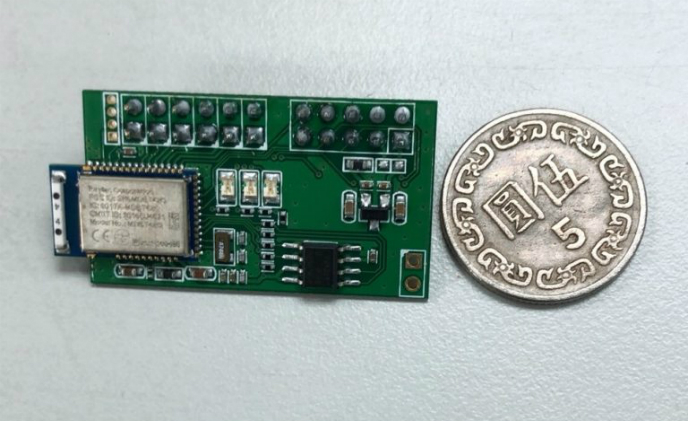Today’s smart locks are known for their versatile ways to unlock: passcodes, fingerprint, physical key, IC card and smartphone. Of all these methods, IC card is most commonly seen in hotels.
Today’s smart locks are known for their versatile ways to unlock: passcodes, fingerprint, physical key, IC card and smartphone. Of all these methods, IC card is most commonly seen in hotels. However, doors in hotels are about to be upgraded in the age of Internet of Things (IoT), allowing guests to unlock the doors using their smartphones.
In order to get this functionality, hoteliers will need to add Bluetooth Low Energy (BLE) connectivity to their doors. Bluetooth is like a standard in today’s smartphones, and with that, users can swipe their phone by Bluetooth-enabled locks to open the door.
When this happens, hotel guests will no longer need to check in at the front desk. Instead, they can just go straight to the room. Their phone essentially turns into an IC card that may also be used to take the elevator, enter the parking lot, use the gym, etc.
Allowing guests to enter their rooms without stopping at the reception can cut down on expenses. This is one major incentive for hotels to implement smart doors.
Some companies in the hospitality industry are planning or in the stage of implementing BLE locks already. It’s the latest door entry innovation in the industry, according to Kevin Chen, General Manager of PowerTek Hardware Co., an original design manufacturer that makes high-end door locks for clients in Europe and North America. “Many technology companies, including ourselves as a lock provider, are thinking how to implement mobile BLE for hotel door locks,” Chen said.
Most existing doors in hotel are equipped with RFID locks, which can be opened with IC cards. Replacing all the doors for BLE-enabled ones will require substantial investment in time and money, and therefore, can be challenging for hotels that are still in operation.
To address this problem, ATW Technology Inc. has created a BLE module that can be inserted into RFID doors. This requires little mechanical installation work and costs less than NT$3,000 per door. ATW’s BLE connection runs on the AES 256 bank-level security. “Compared with replacing the whole door, the BLE module offers a painless upgrade,” said Sam Lin, CEO of ATW Technology.
Right now ATW is working with a 5-star hotel in Taiwan that plans to add BLE connectivity for its doors. The installation can be completed by the end of 2018 at the earliest, according to Lin.
 The BLE module made by ATW Technology is placed beside a coin to illustrate its size.
The BLE module made by ATW Technology is placed beside a coin to illustrate its size.
Mobile app for more services
In order to use the phone as a key, consumers will have to download an app provided by the hotel. The app will provide even more services and bring more conveniences to the guests. ATW is making an app for its hotel client that has the mobile pay functionality. What it does is that customers will be able to use Apple Pay, Google Pay or LINE Pay (depending on which one is available on their phone) to buy products or services during their stay at the hotel. ATW says it is the first company to create an app that simultaneously supports all the three mobile pay options.
The app has multiple functions. One is room automation: hotel guests may use the app to control lighting, among other devices, in the room. They may place morning calls, which may turn on the TV, pull the window drapes and sound the alarm clock, to make sure that guests wake up. The guests may also use the app to request room cleaning during a specific period of time, between 9 am and 10 am, for example, when they want to leave for breakfast.
One reason smart lock in hotels will take off is that it can integrate with smartphones which will provide further on-site services, according to Rupert Spaetauf, Managing Director of Häfele Taiwan Limited. “Smart lock is the future, because it can integrate with other smart devices to provide value-added on-site services, such as nearby restaurant and shopping recommendations.”
Besides supplying architectural hardware in more than 150 countries, Häfele provides access control solutions to five-star hotels around the world. It is currently working with KEYPR, a cloud platform provider for the hospitality industry, to install BLE-enabled door locks. “Everything is in the pipeline. It will happen, possibly in the next two months. It will be rolled out in different parts of the world, wherever KEYPR and Häfele’s presence are seen,” Spaetauf said.
Mobile key for vacation homes
The hospitality app has also found its way in vacation rental homes. One example is HoomVip, which can integrate with the ENTR smart lock provided by ASSA ABLOY to help vacation home owners in Spain manage their properties. Hoomvip offers a “live” in-app channel, which can include a personal video introduction by the vacation home owner, or details about how to operate the boiler and other appliances. Thus the owner can assist his or her guests remotely.
 Thomas Schulz, Director
Thomas Schulz, Director
of Marketing and
Communications of
Digital and Access
Solutions at ASSA ABLOY
“They can check guests in and out without an in-person key handover – 24 hours a day. And this option is essential for a property to achieve Business Travel Ready status from Airbnb,” said Thomas Schulz, Director of Marketing and Communications of Digital and Access Solutions at ASSA ABLOY.
The SCLAK smartphone-managed access system is another app that works with the ENTR smart lock. It allows vacation home owners to deliver value-added services, like grocery shopping and extra cleaning, for an extra revenue stream.
Greater access control
Smart locks can also help lodging providers prevent illegitimate guest entry. In the application of vacation homes, property owners may install smart locks that generate temporary passcodes for guests. The problem is sometimes a guest will bring other people into the property without the landlord’s permission.
ZHouse IoT Technology Inc. has designed a solution. Its smart home system will count how many times the door is unlocked with a given passcode. When it happens at a frequency higher than the normal level, the system will send a push notification to the house owner. ZHouse’s system has an algorithm built-in to calculate what the normal number of entry should be for every room reservation.
In the application of hotels, ATW Technology will mount security cameras outside hotel rooms, and when the door is unlocked, the cameras will be triggered to take pictures for the management to double-check if the number of guests entering the room is the same as what the guest claimed.
Indoor automation
Another reason hoteliers want to install smart locks is that it can help conserve energy. Whenever the door is opened, lights in the hallway can be triggered to switch off, while lights in the room switch on. ATW says it is helping its five-star hotel client do this to cut down on utility expenses.
 Randy Yeh, Marketing VP of
Randy Yeh, Marketing VP of
ZHouse IoT Technology Inc.
Smart locks can also trigger automation for vacation homes. ZHouse says it has a client that divides the property into multiple rental units, and a unique passcode for the front door is given for each unit. When a given passcode is entered to unlock the door, a set of lights leading to the particular room will turn on automatically. This helps guide the guest to his or her room, said ZHouse’s Marketing VP Randy Yeh.
The passcode also grants a guest clearance to use certain devices. For example, the guest entering the property using a certain passcode may only turn on the lamp on the desk assigned to him in the public area. “The automation is useful to smaller hotels that request access to public areas be constrained,” Yeh said.
Smart lock’s role in hotel AI
Networked electronic door locks are an important part in the expansion of artificial intelligence (AI) in hotel operations, said Joey Yanire, Senior Product Manager of Mobile Access Lodging Systems at Dormakaba, a global security solution provider.
 Joey Yanire, Senior Product
Joey Yanire, Senior Product
Manager of Mobile Access
Lodging Systems at
Dormakaba
Online locks capture and record a great deal of non-personal operating data which allows for predictive maintenance while continuously monitoring door status to enhance hotel security. “Dormakaba systems monitor frequency of door use to help properties balance room usage and enable hotels to schedule staff more efficiently,” Yanire pointed out.
The more intelligence that is built into a lock system, the more operators learn about their hotel, the guest experience and the lock’s performance. The usage profile of each lock provides data that supports better decision making, and also helps to reduce operator maintenance costs and improve customer satisfaction, Yanire said.